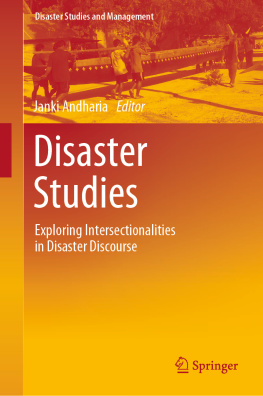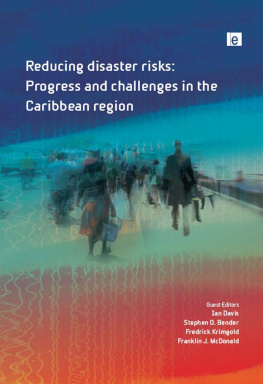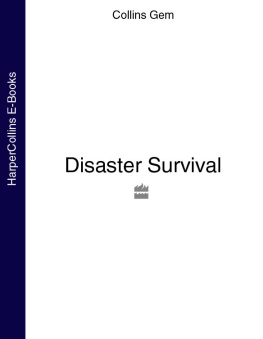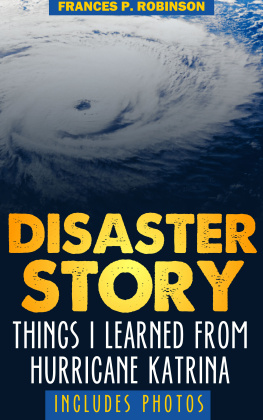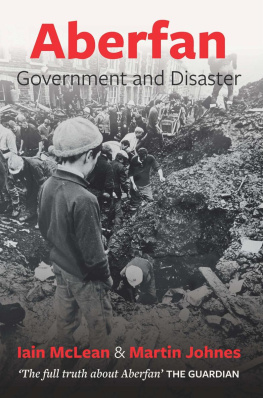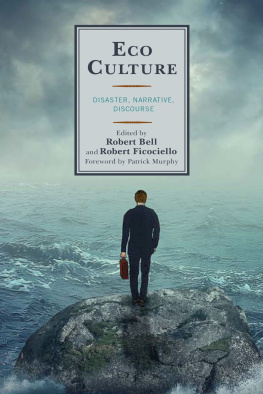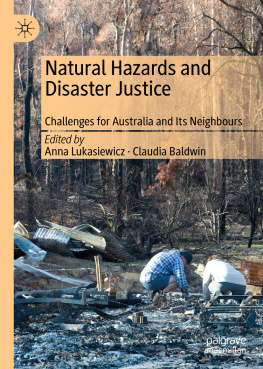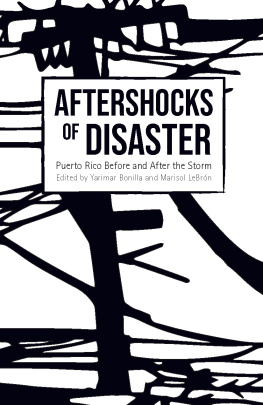Janki Andharia - Disaster Studies: Exploring Intersectionalities in Disaster Discourse
Here you can read online Janki Andharia - Disaster Studies: Exploring Intersectionalities in Disaster Discourse full text of the book (entire story) in english for free. Download pdf and epub, get meaning, cover and reviews about this ebook. year: 2020, publisher: Springer Nature, genre: Politics. Description of the work, (preface) as well as reviews are available. Best literature library LitArk.com created for fans of good reading and offers a wide selection of genres:
Romance novel
Science fiction
Adventure
Detective
Science
History
Home and family
Prose
Art
Politics
Computer
Non-fiction
Religion
Business
Children
Humor
Choose a favorite category and find really read worthwhile books. Enjoy immersion in the world of imagination, feel the emotions of the characters or learn something new for yourself, make an fascinating discovery.
- Book:Disaster Studies: Exploring Intersectionalities in Disaster Discourse
- Author:
- Publisher:Springer Nature
- Genre:
- Year:2020
- Rating:5 / 5
- Favourites:Add to favourites
- Your mark:
- 100
- 1
- 2
- 3
- 4
- 5
Disaster Studies: Exploring Intersectionalities in Disaster Discourse: summary, description and annotation
We offer to read an annotation, description, summary or preface (depends on what the author of the book "Disaster Studies: Exploring Intersectionalities in Disaster Discourse" wrote himself). If you haven't found the necessary information about the book — write in the comments, we will try to find it.
Janki Andharia: author's other books
Who wrote Disaster Studies: Exploring Intersectionalities in Disaster Discourse? Find out the surname, the name of the author of the book and a list of all author's works by series.
Disaster Studies: Exploring Intersectionalities in Disaster Discourse — read online for free the complete book (whole text) full work
Below is the text of the book, divided by pages. System saving the place of the last page read, allows you to conveniently read the book "Disaster Studies: Exploring Intersectionalities in Disaster Discourse" online for free, without having to search again every time where you left off. Put a bookmark, and you can go to the page where you finished reading at any time.
Font size:
Interval:
Bookmark:
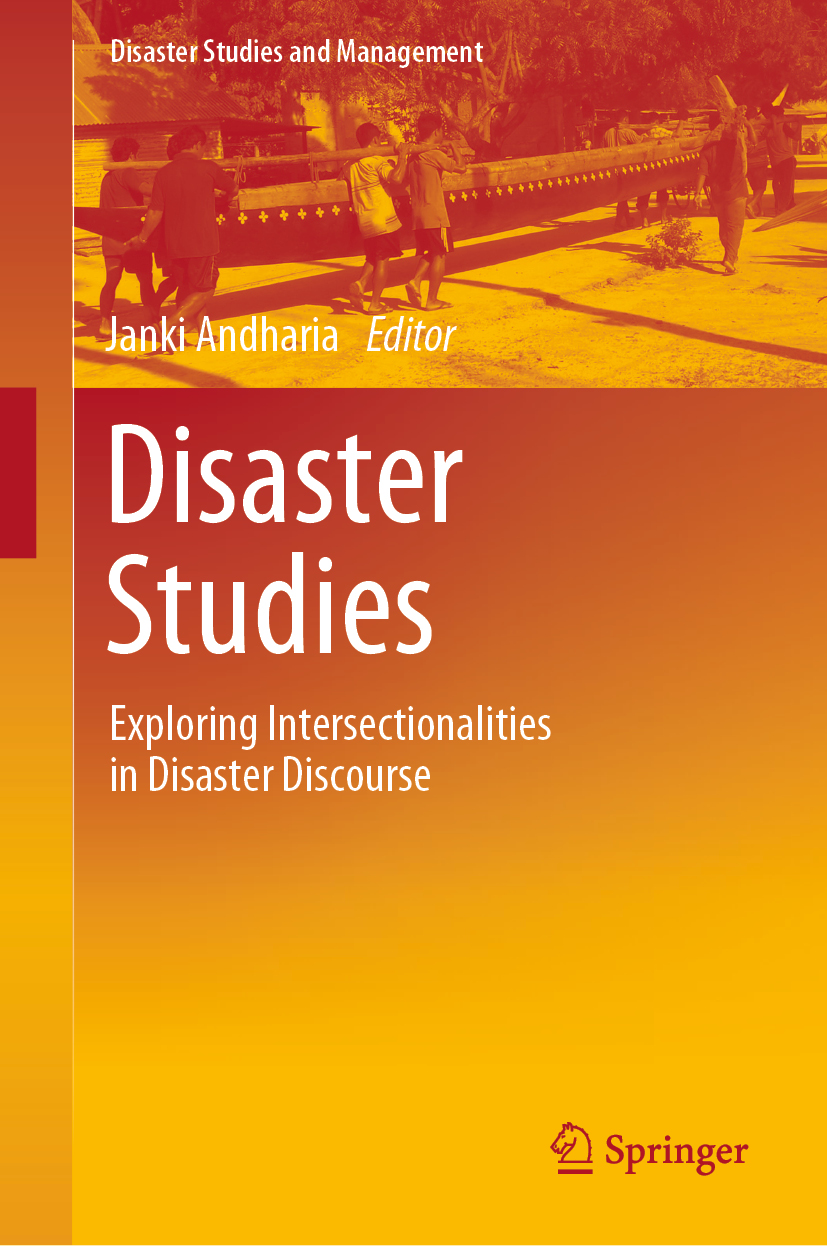
Aims and Scope
This book series aims to further academic scholarship and discourse in the rapidly emerging discipline of disaster studiesencompassing both theoretical and practical concerns in the interface between disasters, their conception, their management and their relationship with various aspects of governance. The series will cover diverse perspectives and approaches, reflected in case studies and narratives from different parts of the world.
The series addresses the growing need to bring together the wealth of dialogue and experiences in disaster research and disaster management. It seeks to enhance the knowledge base explicating the complex relationship between shifting socio-economic situations, unplanned urbanization, environmental degradation, climate variability and change, geological hazards and the threat of epidemics. The series adopts both a comparative and a critical perspective influencing the contemporary discourse around disasters, development and the use of appropriate technologies to foster safety, security and sustainability of the planet.
The series is multidisciplinary in its orientation and invites contributions from academicians, policy makers, practitioners, consultants working in the broad field of disaster management desirous of making scholarly contributions. Books in this series would be of interest to students pursuing postgraduate courses and to practitioners and policy makers looking for reflective and critical literature related to disaster governance and development.
provides a comprehensive coverage of contemporary issues in disaster management and disaster studies
contributes to developing theoretical rigour, linking the fields of disasters, development and climate change adaptation
focuses on critical analysis and developing a comparative perspective in disaster management
Theorization in disaster studies: Perspectives and ideological moorings
Disaster risk reduction, disasters and development
Critical review of evolution of DM practices in diverse contexts
Disasters and media, crisis communication, disasters in a hyper-mediated world
Narrative analysis, ethnography and anthropology in disaster studies
Education, capacity building in DM
Climate change adaptation, extreme weather events and disasters
Cascading disasters or complex emergencies
Disasters and conflict, involuntary displacement, migration and disasters
Local and cultural knowledge for disaster preparedness and response
Critical reflections/analysis on DM as an emerging profession
Law, governance, human rights and transboundary governance
Accountability, entitlements and ethics in DM
Disasters, politics, humanitarian aid
Globalisation, role of UN and international organizations in DM
Technological approaches to DM, assessments and mapping
Health, public health and hospital preparedness (water, sanitation, epidemics)
DM as pluralist practice: Lessons learnt (pre and post disasters, before and after studies)
Disaster recovery practices (economy, habitats, land use, housing, livelihoods, religious and cultural practices)
Disasters, exclusion (special groups- caste, class, elderly, disabled, tourists, etc.)
Data needs and decision making tools in DM, GISbased approaches to DM
Disaster logistics and supply chain management
Taken two years after the Indian Ocean Tsunami of 2004, the cover picture represents the sheer grit of Nicobari tribals, a fiercely independent community of Chaura, a low lying, tiny island in the Andaman and Nicobar Islands of India. Even as the administration evacuated them to temporary shelters on Teressa island for an indefinite period of time, the tribals, tired of waiting for government promises, built their own boats and moved back to their islands. An embarrassed administration was then forced to take note and provide livelihood and other forms of support.
More information about this series at http://www.springer.com/series/13839

Font size:
Interval:
Bookmark:
Similar books «Disaster Studies: Exploring Intersectionalities in Disaster Discourse»
Look at similar books to Disaster Studies: Exploring Intersectionalities in Disaster Discourse. We have selected literature similar in name and meaning in the hope of providing readers with more options to find new, interesting, not yet read works.
Discussion, reviews of the book Disaster Studies: Exploring Intersectionalities in Disaster Discourse and just readers' own opinions. Leave your comments, write what you think about the work, its meaning or the main characters. Specify what exactly you liked and what you didn't like, and why you think so.

